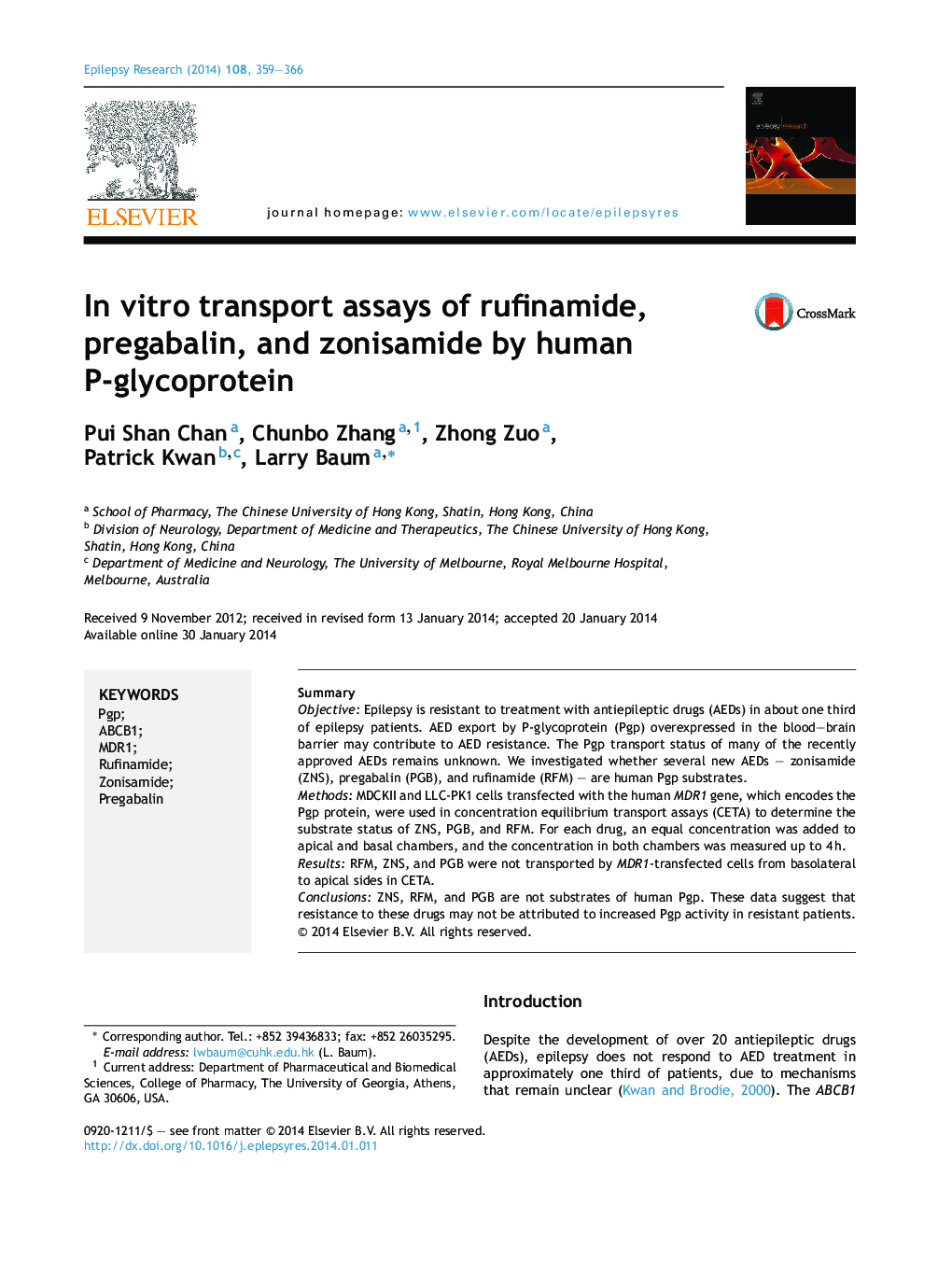| کد مقاله | کد نشریه | سال انتشار | مقاله انگلیسی | نسخه تمام متن |
|---|---|---|---|---|
| 3052098 | 1186080 | 2014 | 8 صفحه PDF | دانلود رایگان |

• P-glycoprotein (Pgp) export may contribute to antiepileptic drug (AED) resistance.
• Concentration equilibrium transport assays (CETA) measure permeable-drug transport.
• Zonisamide, pregabalin, and rufinamide are not Pgp substrates in CETA.
SummaryObjectiveEpilepsy is resistant to treatment with antiepileptic drugs (AEDs) in about one third of epilepsy patients. AED export by P-glycoprotein (Pgp) overexpressed in the blood–brain barrier may contribute to AED resistance. The Pgp transport status of many of the recently approved AEDs remains unknown. We investigated whether several new AEDs – zonisamide (ZNS), pregabalin (PGB), and rufinamide (RFM) – are human Pgp substrates.MethodsMDCKII and LLC-PK1 cells transfected with the human MDR1 gene, which encodes the Pgp protein, were used in concentration equilibrium transport assays (CETA) to determine the substrate status of ZNS, PGB, and RFM. For each drug, an equal concentration was added to apical and basal chambers, and the concentration in both chambers was measured up to 4 h.ResultsRFM, ZNS, and PGB were not transported by MDR1-transfected cells from basolateral to apical sides in CETA.ConclusionsZNS, RFM, and PGB are not substrates of human Pgp. These data suggest that resistance to these drugs may not be attributed to increased Pgp activity in resistant patients.
Journal: Epilepsy Research - Volume 108, Issue 3, March 2014, Pages 359–366